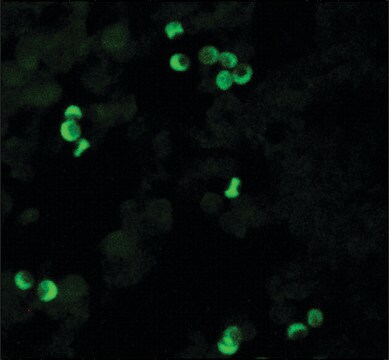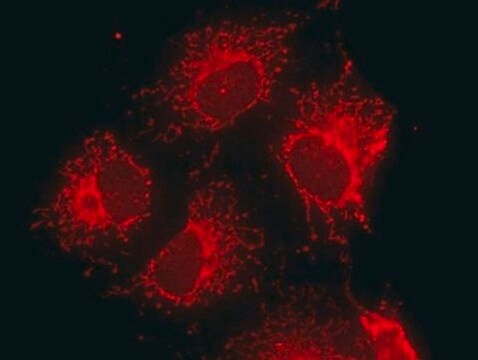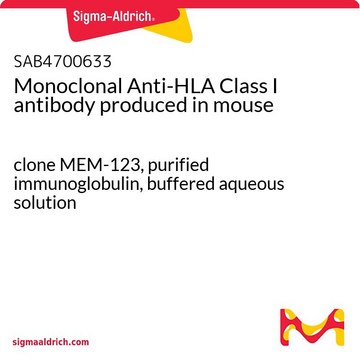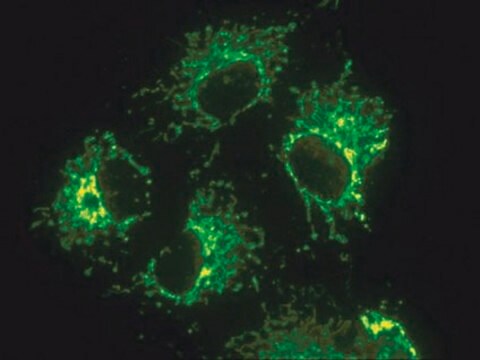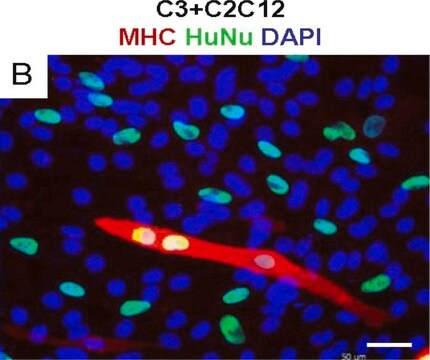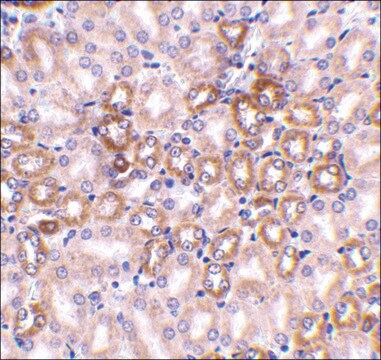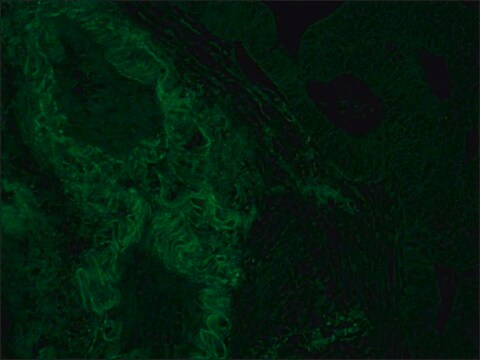SAB4700632
Monoclonal Anti-HLA Class I antibody produced in mouse
clone MEM-81, purified immunoglobulin, buffered aqueous solution
About This Item
Prodotti consigliati
Origine biologica
mouse
Livello qualitativo
Coniugato
unconjugated
Forma dell’anticorpo
purified immunoglobulin
Tipo di anticorpo
primary antibodies
Clone
MEM-81, monoclonal
Stato
buffered aqueous solution
Reattività contro le specie
human
Concentrazione
1 mg/mL
tecniche
flow cytometry: suitable
Isotipo
IgG1
N° accesso NCBI
N° accesso UniProt
Condizioni di spedizione
wet ice
Temperatura di conservazione
2-8°C
modifica post-traduzionali bersaglio
unmodified
Informazioni sul gene
human ... HLA-A(3105) , HLA-B(3106) , HLA-C(3107)
Categorie correlate
Descrizione generale
The previously assigned protein identifier P01891 has been merged into P04439. Full details can be found on the UniProt database.
Immunogeno
Applicazioni
Azioni biochim/fisiol
Caratteristiche e vantaggi
Stato fisico
Non trovi il prodotto giusto?
Prova il nostro Motore di ricerca dei prodotti.
Codice della classe di stoccaggio
10 - Combustible liquids
Punto d’infiammabilità (°F)
Not applicable
Punto d’infiammabilità (°C)
Not applicable
Scegli una delle versioni più recenti:
Certificati d'analisi (COA)
Non trovi la versione di tuo interesse?
Se hai bisogno di una versione specifica, puoi cercare il certificato tramite il numero di lotto.
Possiedi già questo prodotto?
I documenti relativi ai prodotti acquistati recentemente sono disponibili nell’Archivio dei documenti.
Il team dei nostri ricercatori vanta grande esperienza in tutte le aree della ricerca quali Life Science, scienza dei materiali, sintesi chimica, cromatografia, discipline analitiche, ecc..
Contatta l'Assistenza Tecnica.
